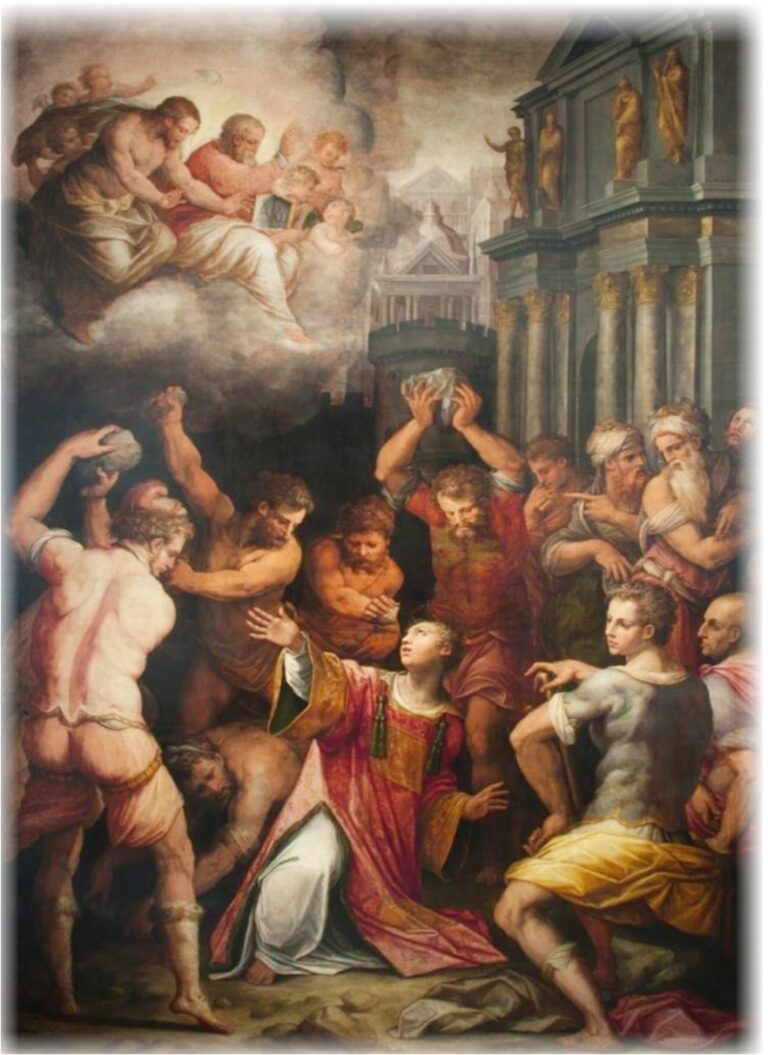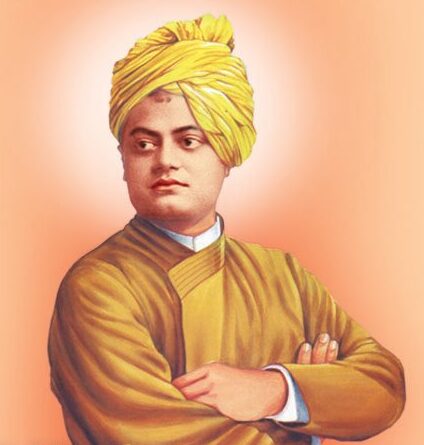Our Patron
Saint Stephen:
St Stephen is recognized as a saint and the first martyr in Christian theology. He was condemned for committing blasphemy against the Jewish Temple,
and was stoned to death circa the year 36.
Saint Stephen is first mentioned in the acts of the Apostles as one of seven deacons appointed by the Apostles to distribute food and charitable aid to poorer members of the community in the early church. According to Orthodox belief, he was the eldest and is therefore called “archdeacon”. He was born Jewish, but nothing more is known about his previous life.

Stoning of Saint Stephen
Stephen is stated to have been full of faith and the Holy Spirit and to have performed miracles among the people. Members of the “Synagogue of the Freedmen” had challenged Stephen’s teachings, but Stephen had bested them in debate. Furious at this humiliation, they suborned false testimony that Stephen had preached blasphemy against Moses and God. They dragged him to appear before the Sanhedrin, the supreme legal court of Jewish elders, accusing him of preaching against the Temple and the Mosaic Law. Stephen is said to have been unperturbed, his face looking like “that of an angel”.
Swami Vivekananda

Vivekananda, original name Narendranath Dutt, (born January 12, 1863, Kolkata—died July 4, 1902), was Hindu spiritual leader and reformer in India who attempted to combine Indian spirituality with Western material progress, maintaining that the two supplemented and complemented one another. His Absolute was a person’s own higher self; to labour for the benefit of humanity was the noblest endeavour.
Born into an upper-middle-class family of the Kayastha (scribes) caste in Bengal, he was educated at a Western-style university where he was exposed to Western philosophy, Christianity, and science. Social reform became a prominent element of Vivekananda’s thought, and he joined the Brahmo Samaj (Society of Brahma), dedicated to eliminating child marriage and illiteracy and determined to spread education among women and the lower castes. He later became the most-notable disciple of Ramakrishna, who demonstrated the essential unity of all religions.
Always stressing the universal and humanistic side of the Vedas, the oldest sacred texts of Hinduism, as well as belief in service rather than dogma, Vivekananda attempted to infuse vigour into Hindu thought, placing less emphasis on the prevailing pacifism and presenting Hindu spirituality to the West. He was an activating force in the movement to promote Vedanta philosophy (one of the six schools of Indian philosophy) in the United States and England. In 1893 he appeared in Chicago as a spokesman for Hinduism at the World’s Parliament of Religions and so captivated the assembly that a newspaper account described him as “an orator by divine right and undoubtedly the greatest figure at the Parliament.” Thereafter he lectured throughout the United States and England, making converts to the Vedanta movement.
On his return to India with a small group of Western disciples in 1897, Vivekananda founded the Ramakrishna Mission at the monastery of Belur Math on the Ganges (Ganga) River near Calcutta (now Kolkata). Self-perfection and service were his ideals, and the order continued to stress them. He adapted and made relevant to the 20th century the very highest ideals of the Vedantic religion, and, although he lived only two years into that century, he left the mark of his personality on East and West alike.
